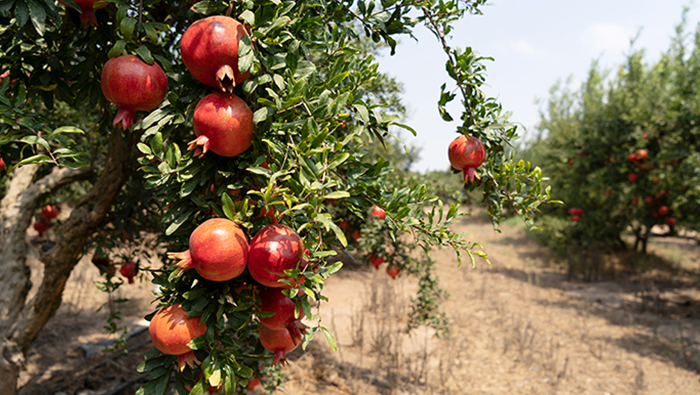The Ministry of Agriculture, Fisheries, and Water Resources (MAFWR) in Oman is focused on promoting sustainable agricultural development to enhance food security, increase agricultural production, and manage pest threats. The Ministry is working to increase private sector involvement in agriculture and ensure the long-term sustainability of Oman’s agricultural resources. One key initiative involves distributing commercial fruit seedlings to farmers, including lemon seedlings, mango seedlings, guava, fig, papaya, coconut, sidr, and pomegranate seedlings. In addition, tissue-cultured and traditional date palm offshoots are being distributed to support date palm cultivation across the country, with Nakheel Oman Development Company overseeing 11 farms with a total of 500,000 date palms.
The Ministry has expanded wheat cultivation to over 8,940 acres, yielding more than 11,600 tonnes of wheat. This expansion includes 17 wheat varieties to improve production diversity and resilience. The Ministry has also made progress in grape cultivation with 25 commercial fields established and invested in olive farming projects, particularly in mountainous regions. This olive cultivation initiative includes the distribution of 10,000 olive cuttings to farmers and the establishment of a local olive oil extraction unit. These efforts are part of a larger strategy to achieve self-sufficiency in food production.
To combat pest threats, the Ministry has implemented extensive control projects, including large-scale aerial spraying to address issues like date palm moths and red palm weevils. Advanced pest control techniques such as drones and helicopters are utilized to protect crops and improve yields. The Ministry has also strengthened pesticide and fertilizer markets by issuing new licenses and regulating import and export activities. Last year, the Ministry issued 96 pesticide registration certificates and 225 retail licenses for fertilizer sales, among other permits, to maintain quality and adhere to environmental and health standards.
Regulatory efforts by the Ministry include conducting inspections across local farms and commercial agricultural enterprises to ensure compliance with standards. Thousands of inspection visits have been conducted, leading to the identification of violations such as unauthorized land use and trading in unlicensed agricultural products. Import permits for various plants and plant products are facilitated by the Ministry, and agricultural shipments are inspected to verify their safety and quality. These measures help safeguard plant health and consumer safety while promoting sustainable agricultural practices that align with Oman Vision 2040.
Overall, the Ministry is actively working to contribute to Oman’s food security, increase agricultural resilience, and promote sustainable practices for a stable and prosperous agricultural sector in the future. By distributing fruit seedlings, expanding wheat cultivation, investing in grape and olive farming projects, implementing pest control measures, and strengthening pesticide and fertilizer markets through regulation and inspections, the Ministry is playing a crucial role in enhancing agricultural development in Oman. These efforts are essential for ensuring a sustainable future for agriculture in Oman and supporting the country’s vision for 2040.











